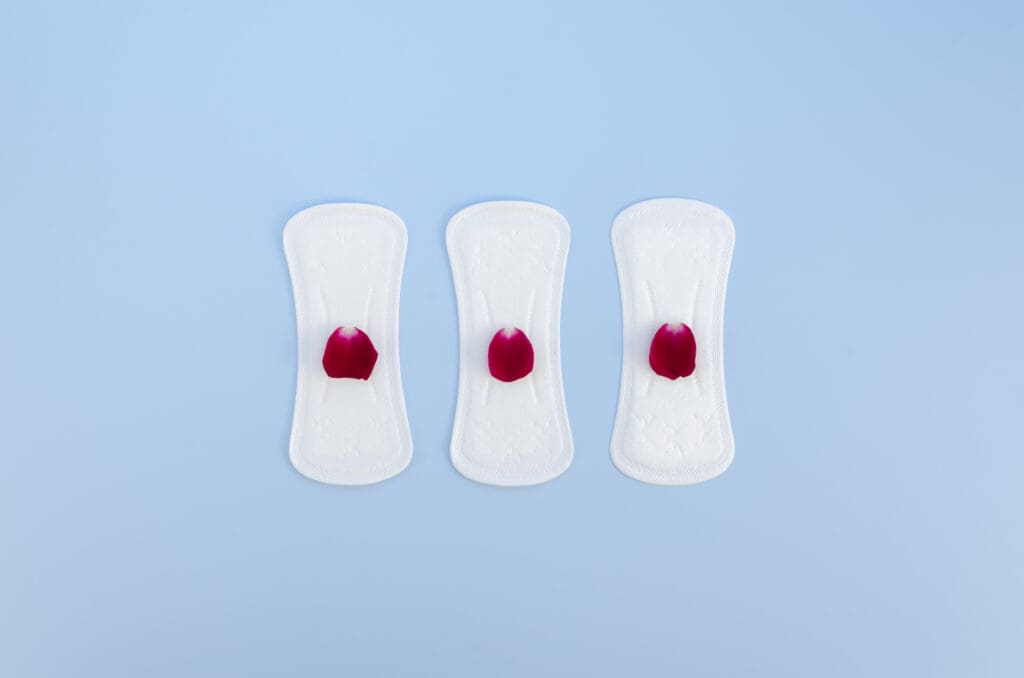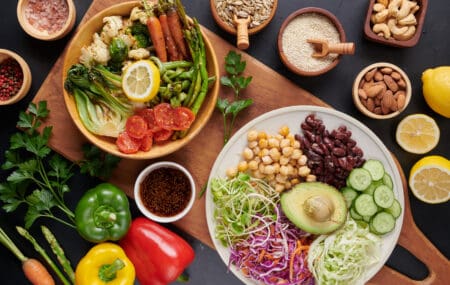
Blood Clots During Your Period: What Are They?
Noticing blood clots during your period can feel a little unsettling, especially if you’re unsure what they mean. The good news is that, for most people, they’re a normal part of menstruation. However, there are times when clots might be a sign of something more serious. This blog will help you understand what period blood clots are, why they happen, and when you might want to seek medical advice.
What are period blood clots?
Blood clots during menstruation are a mixture of blood cells, mucus, tissue from the uterine lining (endometrium), and proteins that help regulate blood flow. These clots can be jelly-like blobs, ranging in size from tiny specks to as large as a coin. They are most common during the heavier days of menstruation (like days 1 or 2), when your flow is faster.
Why do blood clots happen?
During your menstrual cycle, your uterus builds up a lining in preparation for pregnancy. If pregnancy doesn’t occur, this lining sheds, which is what you experience as your period. Normally, your body releases anticoagulants (substances that thin the blood) to keep the menstrual flow fluid and prevent clotting. But when your flow is heavier, your body may not be able to keep up, and that’s when clots form.
When are blood clots normal?
In most cases, blood clots are a completely normal part of menstruation. Here’s when you can expect them:
- Heavy flow days: Clots are most common during the first two days of your period, when bleeding tends to be heaviest.
- Dark red or brown clots: These colours often indicate older blood that has oxidised as it makes its way out of your body. This is normal and usually not a cause for concern.
- Small to medium-sized clots: Clots that are about the size of a 10p British coin or smaller are typically considered normal.
When should you be concerned?
While most clots are harmless, there are certain situations that may require a visit to the doctor. Keep an eye out for the following:
- Clots larger than a 50p coin: If you’re consistently passing large clots (bigger than 2.5 cm in diameter or a 50p coin), it could indicate a heavier-than-normal flow or an underlying health issue.
- Frequent large clots: Passing several large clots during your period might be a sign of an underlying issue like fibroids or hormonal imbalances.
- Severe pain or discomfort: If clots are accompanied by intense pain, cramping, or discomfort, it’s worth consulting a healthcare professional.
- Sudden change in menstrual flow: If you suddenly experience much heavier periods or larger clots than usual, this could be a sign of a medical condition like endometriosis, uterine fibroids, or polyps.
- Clots during pregnancy: Blood clots during pregnancy can be a sign of a miscarriage. If this happens, seek medical attention immediately.
What causes large blood clots?
Several factors can cause the body to produce larger blood clots or a heavier menstrual flow. Some common causes include:
- Uterine fibroids: Non-cancerous growths in the uterus can cause heavier periods and larger clots.
- Endometriosis: A condition where tissue similar to the lining of the uterus grows outside of it, leading to heavy bleeding and clotting.
- Hormonal imbalances: Oestrogen and progesterone regulate your menstrual cycle. If these hormones are out of balance, the uterine lining can become excessively thick, leading to heavy periods and more clotting.
- Adenomyosis: When endometrial tissue grows into the muscular wall of the uterus, causing prolonged bleeding and pain.
- Polyps: Small growths in the uterine lining that can lead to irregular or heavy bleeding.
- Miscarriage: Blood clots during pregnancy can sometimes be a sign of miscarriage and require urgent medical attention.
- Bleeding disorders: Rare conditions like von Willebrand disease may cause excessive menstrual bleeding and clotting.
How to manage blood clots during your period
If your clots are not due to an underlying medical condition, managing them usually comes down to managing your menstrual flow. Here are some tips:
- Use the right menstrual products: For heavy flow days, consider using super-absorbent pads or tampons. Menstrual cups can also handle a larger volume of blood.
- Stay hydrated: Dehydrated can sometimes make clots worse. Make sure you’re drinking plenty of water to help replenish blood loss.
- Eat iron-rich foods: Heavy periods can lead to irone deficiency. Try to include iron-rich foods like spinach, lentils and red meet in your diet to keep your energy levels up.
- Over-the-counter pain relief: Anti-inflammatory painkillers like ibuprofen can help reduce the heaviness of your flow and ease cramping.
- Track your cycle: Using our app to track your cycle can help you note when clots appear and how heavy your periods are. This information can be helpful if you need to consult a doctor.
- Prioritise rest: Never underestimate the power of rest. Heavy periods can be exhausting! Give yourself enough time to rest, especially if your bleeding is heavier than usual.
What’s normal for you?
Every woman’s period is different. Some women experience small clots now and then, while others may see them regularly. The key is to know what’s normal for your body and pay attention when things change. If your clots suddenly become larger, more frequent, or accompanied by pain, talking to a healthcare professional is a good idea.
Remember: In Islam, taking care of your health, including understanding your menstrual cycle, is part of honouring the trust (amānah) Allah ﷻ has placed in your body. Your period is a powerful indicator of your overall health. By learning what’s normal and when to seek help, you can stay confident and connected to your body.

